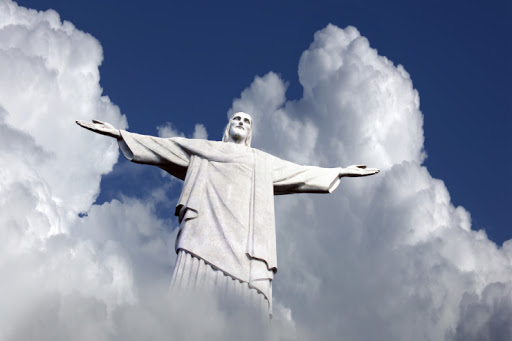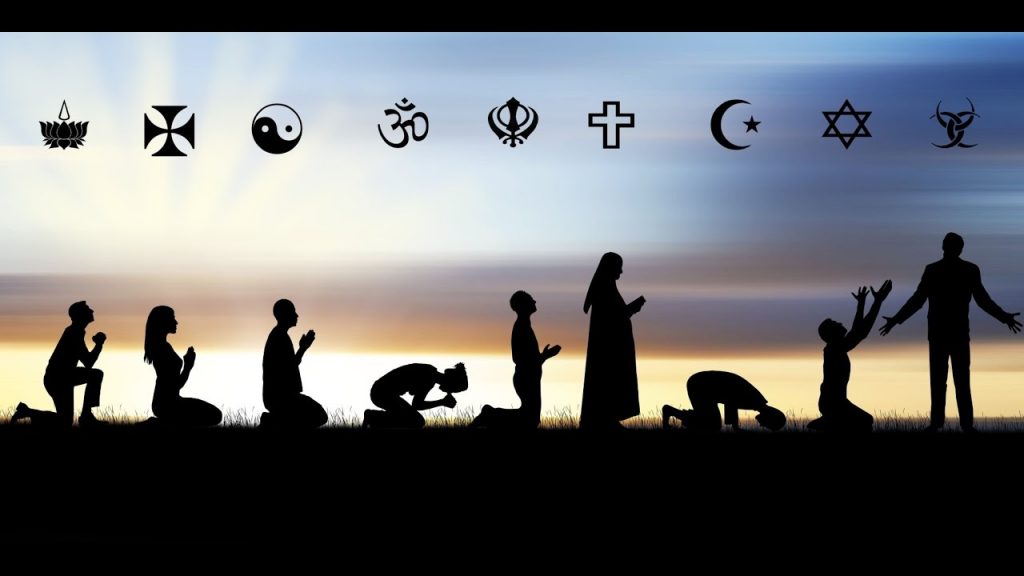Strolling by the Quays in Salford is one of my favourite ways to unwind in Greater Manchester. The sun shimmering on the waters and forms a picturesque backdrop against the BBC and ITV studios. On this occasion I was joined by a friend of mine. At one point, the conversation steered toward faith and evangelism. She expressed a thought which has been on all our minds at one point or another: “I don’t feel like I have the right to tell someone what they believe is wrong”. The question revealed her heart for God and desire not to offend others which I admired. Hence, I replied to the question as lovingly and faithfully to the Gospel as I could.
Not All Religions are the Same
Many believe that the major world religions are fundamentally the same but only different on a superficial level. Contrary to popular opinion, this is false. For example, one similarity (especially for monotheistic religions), concerns the issue of how people may be brought into right standing with a holy God. Another is the question of what happens to us after we die. How each religion answers these questions varies dramatically, exposing their vast and crucial differences. Not all religions are the same. They are fundamentally different, with some superficial similarities, therefore requiring one to be true.
What is Truth?
“Everyone has their own truth” is a popular maxim in our day. This is rooted in the postmodernist thought which has borne a cataclysmic impact on Western Europe. Truth is no longer considered objective and absolute. However, for the sake of logic (and the sake of Christ), this can’t be so. Truth by its very definition demands objectivity. If not, we can never be certain of anything from life, from history, to the present and future things to come- should it be founded upon subjective thought/feeling. Surely for someone to build upon and devote their whole life to a particular faith, they ought to know whether it is true or not.
Yahweh is God
Yahweh (YHWH) is the Hebrew name by which God identified Himself to Moses in the burning bush (Exodus 3:13-14). He is the eternal, self-existent God as communicated by declaring “I am who I am.” This was used to form the central tenet of Judaism in Deuteronomy 6:4-9 known as the Shema. Verse 4 comprises just four words in Hebrew, “Yahweh our God, Yahweh One” (with the word “is” being implicit).
“Hear, O Israel: The Lord our God, the Lord is one.[a]
Deuteronomy 6:4
This emphatically asserts that there is only one God. All other gods are idols because Yahweh is the one and only true God (Isaiah 45:5-6). God has revealed Himself as Yahweh with this being the Covenant name of God by which He is associated with Israel and His promise to Abraham (Exodus 3:15). Therefore, Allah, Buddha and Krishna are not different names for the same God. There is only one God, and His name is Yahweh.
One Way to God
Jesus strongly affirmed that there is only one God (Matthew 22:36-40 and Mark 12:28-30). He also proclaimed that there is only one way to Him.
Thomas said to him, “Lord, we do not know where you are going. How can we know the way?” Jesus said to him, “I am the way, and the truth, and the life. No one comes to the Father except through me.
John 14:5-6
Moments before at the Passover, Jesus told His disciples that He would depart from them. Jesus encouraged them not to be troubled, for He was going to the Father’s dwelling place (heaven). He would prepare a place for His disciples to join Him there when He returns for them at His second coming.
Not all roads lead to this destination, it is a one-way road, and that road is Jesus. In claiming to be the Truth Jesus equated Himself with the Law of God as the authoritative standard of righteousness. In perfectly fulfilling the law of God, He is the Truth (Matthew 5:17). In His life, death and resurrection, He became the source of all life, physical and eternal.
And there is salvation in no one else, for there is no other name under heaven given among men by which we must be saved.”
Acts 4:12
For there is one God, and there is one mediator between God and men, the man Christ Jesus,
1 Timothy 2:5

Jesus Proved It
To claim to be the exclusive way to God is an incredibly bold statement. Some may call it arrogant. However, we can be fully persuaded that this is indeed true because of the most important event in the history of the world: the resurrection of Jesus Christ. Raising Himself up on the third day demonstrated that Jesus did what He said He would do (John 2:18-22; 10:16-18). It gives certainty that the resurrected Christ will bring His disciples safely home (John 14:1-4). We are assured that the dead in Christ and those who are alive, in Him, will be raised with Him (1 Thessalonians 4:13-18). The resurrection guarantees us that Jesus is the Way, the Truth and the Life because God’s plan for redemption was accomplished through the Son’s sacrifice on the cross on our behalf and was accepted by the Father.
We Must Share the Truth
Surely for someone to build upon and devote their whole life to a particular faith, they ought to know whether it is true or not. There is one God and one way to Him, Jesus Christ, making Christianity the truth. It is more loving to share the truth with someone rather than leaving them in a lie with perilous eternal consequences. This requires us to respectfully and lovingly share the Gospel with people of different religions/no religion at all. My next article shall explore how we may do so.
